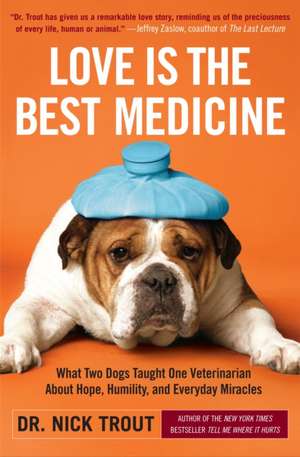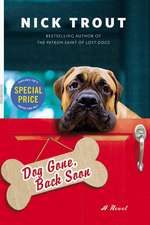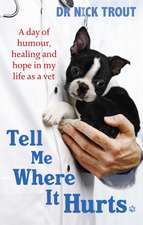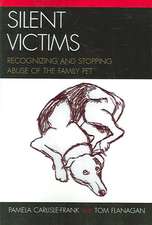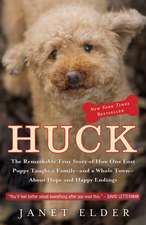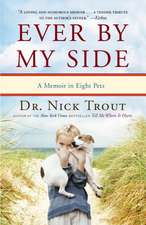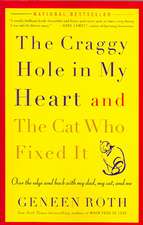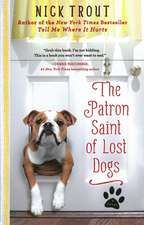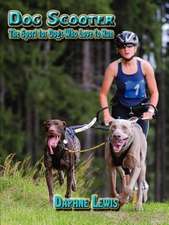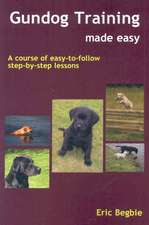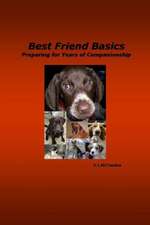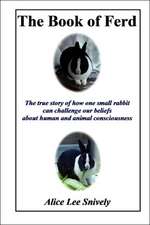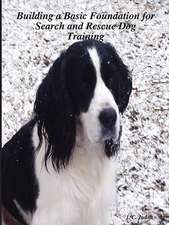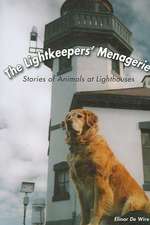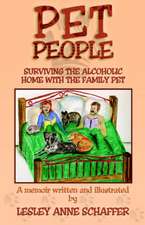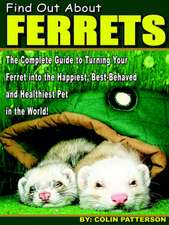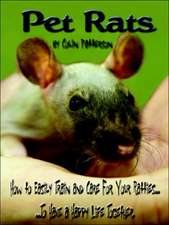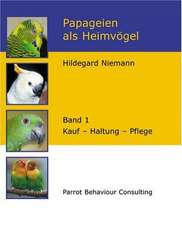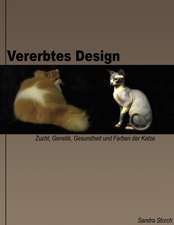Love Is the Best Medicine: What Two Dogs Taught One Veterinarian about Hope, Humility, and Everyday Miracles
Autor Nick Trouten Limba Engleză Paperback – 31 dec 2010
From instant New York Times bestseller, Dr. Nick Trout comes another touching and heartfelt story from the front lines of veterinary medicine—the story of two dogs who forever changed the way he thought about life, death, fate and love.
Helen is an older cocker spaniel found neglected and abandoned in a restaurant parking lot one rainy night. Despite her mangy condition and terrible smell, Ben and Eileen fall in love with the pitiful creature and decide to take her in. But just as Helen is rescued from a sad life on the streets and enveloped in a loving home with all the creature comforts an old dog could ask for, a tumor is discovered and she's given a devastating prognosis. All Ben and Eileen want is for Helen to beat the odds and survive for one more summer so that she can have one chance to swim in the ocean on the family's annual trip to Prince Edward Island. In short, they want a miracle.
Meanwhile, fourteen-month-old miniature pinscher Cleo keeps breaking one leg after another which devastates her poor owner, Sandi. While Cleo is visiting Sandi's daughter, Sonja, in Bermuda, she succumbs to yet another fracture. Distraught that the injury happened on her watch, Sonja makes a plan to fly Cleo to Boston to get the specialist care she needs before Sandi even finds out. Enter Dr. Trout who presides over what should be a fairly routine surgery. What happens next forever links two families, their dogs and a beloved veterinarian and teaches them all a lesson about grace that resonates to this day.
Love is the Best Medicine immerses you in the true life drama of beloved pets whose lives hang in the balance. Every page underscores the profound bond we have with the animals in our lives and the incredible responsibility Nick carries as their healer. Certainly Dr. Trout has an impressive array of fancy equipment, training and skills at his disposable, but his most important tool (as he persuasively illustrates here) is a fundamental belief in the power of hope, humility, and grace.
Wry, charming, and intensely affecting, Love is the Best Medicine is a one of a kind story only the winsome Dr. Trout could deliver and is destined to become a favorite for animal lovers.
From the Hardcover edition.
Preț: 105.63 lei
Nou
Puncte Express: 158
Preț estimativ în valută:
20.22€ • 21.97$ • 16.99£
20.22€ • 21.97$ • 16.99£
Carte disponibilă
Livrare economică 01-15 aprilie
Preluare comenzi: 021 569.72.76
Specificații
ISBN-13: 9780767931984
ISBN-10: 076793198X
Pagini: 270
Dimensiuni: 133 x 203 x 17 mm
Greutate: 0.21 kg
Editura: BROADWAY BOOKS
ISBN-10: 076793198X
Pagini: 270
Dimensiuni: 133 x 203 x 17 mm
Greutate: 0.21 kg
Editura: BROADWAY BOOKS
Notă biografică
Nick Trout graduated from veterinary school at the University of Cambridge, England, in 1989. He is a diplomate of the American and European Colleges of Veterinary Surgeons and a staff surgeon at the Angell Animal Medical Center in Boston. He lives in Massachusetts with his wife, daughters, and two dogs: Meg, a yellow Labrador, and Sophie, a Jack Russell terrier.
From the Hardcover edition.
From the Hardcover edition.
Extras
Chapter 1: Helen
Inside the restaurant, they were just an ordinary couple, enjoying their dinner, comfortable with the lulls in conversation that define a successful relationship. Yet Ben was tuned in to everything unsaid, to the waves of distraction playing over Eileen’s face, her refuge in the safety of neutral topics—his latest commission, an upcoming exhibition in California, the antics of their beloved Newfoundland dog, Didi, patiently waiting for them to come home. He knew what was really on Eileen’s mind, but at this stage in their marriage he had learned his wife would talk about her troubles when the time was right.
Outside the restaurant, there was a creature waiting in the shadows. Historically, only certain humans—the kind with food—were of any interest to this animal and like most of her species, she relied heavily on olfactory guidance to pick her targets. But on this bitter, cloudless night, refrigerated air would have forced her to trust to visual cues, searching for victims with a friendly, receptive demeanor and preferably carrying a doggy bag. An elderly husband and wife shuffled toward a frosty- white Cadillac like a couple of emperor penguins. By any standard they looked approachable, likely to be sympathetic, and there was that all- important polystyrene container in hand. Then the woman spoke, and the shrill and relentless pitch of her voice forced the creature to back off, the tirade fueled by an inattentive waitress, stale bread, and overpriced entrees, the woman’s husband distracted and happy to grunt in agreement, his index finger working some meaty detritus trapped between difficult- to- reach molars. Next up was a gaggle of twentysomething women, laughing and shouting, pitching back and forth, alcohol, high heels, and black ice adding to their amusement as they staggered across slippery asphalt arm in arm, five abreast. No doubt they were getting in practice for next month’s office Christmas party. Only one of these Spice Girls kept a straight face and fortunately she was the one fumbling for a set of car keys.
There was a man overdressed in a suit and tie, out of place with an attractive woman in blue jeans, the two awkward together in the open raw darkness. She stood upright, feet together, hugging herself, drum tight, impervious to his forced small talk, his rehearsed prelude to plucking up his courage and leaning forward, hoping for a kiss, as she read the move and delivered a polite smile while extending a weak hand to shake. The moment said it all—thanks, but no thanks. Another blind date disaster, another phone number for her to screen on her caller ID.
The guy headed toward the pickup truck had encountered the creature before and perhaps it was recognition that had her edging out of the shadows until he opened the passenger side door and a stream of curses exploded in the frigid night air. The words were meaningless to her but their volume, clipped intonation, and vehemence packed a punch. His ice scraper was no longer in the glove compartment where he thought he had left it, forcing him to pull on the cuff of his lumberjack shirt and scour a hole through the gathering frost on his windshield.
And then there were Ben and Eileen, headed for a small SUV in the farthest corner of the lot. Despite the absence of a doggy bag, their body language sent all the right signals. They walked slowly, his arm around her shoulder, his head floating a foot above hers, angled down, a big hand visible and offering a reassuring squeeze.
“You’ve gone all quiet on me,” said Ben. “You okay?”
Eileen looked up and worked on forcing a smile into her voice. “I’m good,” she said and added, “I was just thinking about Helen. I’m going to miss her, you know.”
Ben nodded but kept quiet, watching her find the words.
“I mean, it’s not as if she didn’t have a wonderful life. Ninety- two years old—three children, nine grandchildren, twenty- one greatgrandchildren. Independent, determined, and opinionated until the end and she gets to die peacefully in her sleep. What more could
anyone ask for?”
Ben pursed his lips, keeping in step with her deliberate, short stride, surprised they had never gotten to this when he was eating his main course of homemade gnocchi. He had come prepared to discuss the death of Eileen’s last living grandparent, Helen, to defend the inevitability and unpredictability of loss, the way it can summon injustice and anger as it clings to those left behind. But he could clearly see the only emotion welling up in his wife’s big blue
eyes was sadness.
“Your grandmother was a great lady and if ‘Ma’ taught me anything,” Ben stretched out the a like a lifelong Red Sox fan from South Boston, “it would be not to go all mawkish over her passing. Let’s not forget, Helen was the matriarch who nurtured three generations of unruly boys with the line ‘Don’t come crying to me when you’re dead’!”
Eileen began to laugh, the uninhibited laughter of vulnerability and relief.
“You’re absolutely right,” she said, hearing Helen’s familiar scratchy voice fade away inside her head. She looked up at her husband, loving him for his gift of always finding the right words and the satisfaction written all over his face for having done so.
“Thanks. And thanks again for dinner. It was great.”
“You’re very welcome,” said Ben, pecking her on the cheek before breaking away and pressing the key fob, lights on the Toyota RAV 4 blinking in anticipation of their arrival.
Ever the gentleman, he came around to the passenger side and opened the door. He had time to squeeze in a theatrical bow and sweeping hand gesture before releasing a loud involuntary screech, as something small and black entered his peripheral vision from the left, moving at high speed and headed directly for his wife.
Some time later he would try to defend his shocked reaction, blaming the poor lighting, the moonless night, the absence of streetlamps, his myopia and need for a new contact prescription. He would reference his childhood fear of bears, his fleeting impression of a stealthy, possibly rabid beast, its velocity smacking of focus, target, and intent to harm. Finally he would claim that the controlled scream was his best attempt at offering his wife some kind of a warning, given all of these limitations.
“It’s just a dog,” said Eileen, squatting down to initiate a proper greeting without hesitation. “What did you think it was?”
Releasing a breathy “Jesus Christ,” Ben disengaged his flattened body from the car’s hood.
“I just saw this black thing, coming out of nowhere,” he said, moving closer.
Eileen appeared not to hear him, focused on comforting the trembling ball of fur at her feet.
The dog had homed in like a heat- seeking missile, squirming around her shins in a tail- wagging, butt- wiggling frenzy of excitement, going turbocharged with the apparent ecstasy of human contact. As soon as Eileen bent down to pet her, she could feel the uneven curly knots of fur, clumps of matted, congealed hair hanging from her body, gritty, greasy dirt leaping onto Eileen’s fingertips. The dog flipped over, onto her back, big front paws limp, back legs splayed, relaxed, praying for a belly rub or a scratch in a difficult-to-reach armpit, and as Eileen obliged, the dog’s eyes closed and her teeth began to chatter, as if she were saying “thank you” in Morse code.
“What is he?” said Ben.
“He,” said Eileen, “is a she, and she, if I am not mistaken, is an American cocker spaniel.”
As Eileen spoke, the momentary shift in her attention had the dog back onto all four legs, frantically resuming the quest for a physical connection, rooting with its short snout like a veteran Provençal hound catching the scent of wild truffles.
Ben watched his wife pick up the little dog’s head with two hands, gently cradling the weighty pendulous ears in her grasp, locking eyes, offering words of reassurance, and he saw the patent intensity in their connection, an electrical circuit being completed, and he knew he was in trouble. He had enough of a sense of Eileen’s compassion and weakness when it came to animals to know exactly where this was headed.
Ben considered himself a bona fide animal lover having grown up with all manner of pets: birds and horses, cats and dogs. However, for the past five years, he had been devoted to 140 pounds of black female Newfoundland that went by the name of Didi. Larger than life, Didi was an Airbus of a dog, filling rooms with her presence and hearts with her easy joie de vivre. Ben relished the simple pleasures of living with this goofy- Newfy. Of all the dogs he had ever known, there was something about this giant, this temptress of the bear hug—reeling you in every time as her independent streak made you work to share her space, and not the other way round. Yet here, at his feet, suddenly and unsolicited, a very different kind of dog was igniting an unsettling little sparkle in his wife’s eyes. By comparison, here was a creature that seemed, irrespective of size, somewhat agitated and particularly needy. Neither he nor Eileen had ever considered getting a second dog. Why would they? Didi provided all the canine presence anyone could possibly want or hope for. And besides, there were basic practicalities to consider—dog food and
veterinary bills—and who knew how well this cocker spaniel might get on with other dogs? If only out of prudence and a sense of loyalty to his beloved Didi, it seemed appropriate to air some measure of reservation, though this would require diplomacy, if not caution.
“She must belong to someone,” said Ben, more statement than question.
Eileen felt around the dog’s neck.
“No collar, no tags.”
She encouraged the dog to roll over, quickly rewarded once more with obedience and a desire to please.
“And I don’t see any sign of a tattoo.”
Ben squatted down and offered the dog a belly scratch while inspecting the bald skin patches of her groin for ink. Nothing but a coating of what felt like a thick lacquer of engine oil. He jiggled a sizable love handle on the dog’s hips.
“Well, whoever owns her makes sure she is well fed. No shortage of insulation here.”
“Thank God,” said Eileen, a little defensively, surprised by her husband’s lack of chivalry and decorum. “It’s freezing out here.”
She glanced over at Ben.
“Go see if she belongs to the restaurant.”
Ben eased back into a standing position.
“What, now?” He sensed that the whine in his voice was not helping his cause. He opted for a different tack. “Look,” he said, “she has to be a smart dog. She knew what she was doing when she found you. She’ll find her way home, no problem.”
Eileen ignored him and scooped the dog up and into her arms.
“Hand me the keys. I’ll warm the truck up while you’re gone. If she hangs out in this parking lot chances are someone who works here will know who she is.”
She was smiling, enjoying this little drama, this chance to do good, knowing he would capitulate as she opened her hand, took the keys, and watched him head off the way they had come.
“Lock up until I get back,” he said over his shoulder, without expecting a reply.
Ben saw that the lights inside the main entrance had been dimmed, warding off late arrivals, even before he pulled on the front door and found it locked. Mario’s closed at ten, according to the white stenciled lettering behind the glass; his wristwatch said 9:57—justification enough for knocking, a sturdy rap that might summon the maitre d’. Then he heard a woman’s laughter emanating from somewhere out back and headed toward the sound. Maybe the spaniel belonged to the owner or someone renting a room over the restaurant, someone who knew their dog would be smart enough to stay within the confines of the lot.
At the back of the restaurant Ben saw the stark outlines of two individuals in white cotton jackets. They were standing off to the side of a large Dumpster, in conversation—a goofy comedic male and a receptive giggly female—the red glow of their cigarettes bobbing in the darkness, arcing from mouth to waist and back to mouth again, and just before he reached them he had a bizarre flashback to a childhood memory. For a split second, on his mind’s big screen, he could clearly see a performance of Disney’s Lady and the Tramp, the scene with the two dogs sucking on the same strand of spaghetti, chewing their way toward their first awkward kiss, a swarthy heavily accented waiter serenading them with a booming rendition of “Bella Notte.” Suddenly Ben was struck by the improbable notion of tracking down a wandering cocker spaniel at an Italian restaurant. As Ben approached he saw the woman in a slash of light spilling from an open kitchen door. In addition to her chef outfit she wore a red bandanna to cover her hair. She punched her friend in the shoulder affectionately.
“Excuse me, I don’t suppose you’ve lost a dog or know if one’s gone missing.”
The man was young, maybe nineteen or twenty, working on his goatee like it was his first, enjoying the novelty of its feel on his face, stroking its outline to make sure it was still there. He squeezed in another quick puff before asking,
“What sort of a dog?”
“Cocker spaniel,” said Ben. “Black. Female.”
The kid appeared to ponder the question before taking his last drag like it was a joint, grimacing, holding on before flicking the butt into the night.
“No,” he said, shaking his head. “I’ve not seen a single dog in all the time I’ve worked here.”
“And how long have you been working here?” said Ben, thinking weeks, maybe months, but knowing the kid wasn’t old enough for years.
“Since six o’clock this evening,” said the kid, swatting his accomplice, who cracked up on command. “It’s my first night on the job.”
Ben managed a fey smile, wearily letting his head fall to one side.
“Maybe there’s someone else in the restaurant I can ask.”
Miss Bandanna finally got ahold of herself.
“No need,” she said. “I know the dog you’re talking about. Friendly, fat, likes to work her booty.”
“The very same.”
“She’s a regular, always coming by, waiting by the back door, looking for scraps.” She turned to the kid.
“If Chef ever catches you feeding her he’ll threaten to fire you on the spot even though we’ve all caught him giving her leftovers.”
Then back to Ben.
“Restaurants and stray dogs don’t go well together, you know. And if you ask him, Chef will reckon you’re a health inspector and deny ever knowing her.”
“This explains the love handles,” thought Ben before asking, “So where does she come from?”
“No idea. But this place is out in the boonies, on a busy highway. Nearest house is half a mile that way.” She thumbed over her shoulder. “So if she’s wandering that far, this often, she don’t gotta be getting fed at home. Why else would she come here?”
From the Hardcover edition.
Inside the restaurant, they were just an ordinary couple, enjoying their dinner, comfortable with the lulls in conversation that define a successful relationship. Yet Ben was tuned in to everything unsaid, to the waves of distraction playing over Eileen’s face, her refuge in the safety of neutral topics—his latest commission, an upcoming exhibition in California, the antics of their beloved Newfoundland dog, Didi, patiently waiting for them to come home. He knew what was really on Eileen’s mind, but at this stage in their marriage he had learned his wife would talk about her troubles when the time was right.
Outside the restaurant, there was a creature waiting in the shadows. Historically, only certain humans—the kind with food—were of any interest to this animal and like most of her species, she relied heavily on olfactory guidance to pick her targets. But on this bitter, cloudless night, refrigerated air would have forced her to trust to visual cues, searching for victims with a friendly, receptive demeanor and preferably carrying a doggy bag. An elderly husband and wife shuffled toward a frosty- white Cadillac like a couple of emperor penguins. By any standard they looked approachable, likely to be sympathetic, and there was that all- important polystyrene container in hand. Then the woman spoke, and the shrill and relentless pitch of her voice forced the creature to back off, the tirade fueled by an inattentive waitress, stale bread, and overpriced entrees, the woman’s husband distracted and happy to grunt in agreement, his index finger working some meaty detritus trapped between difficult- to- reach molars. Next up was a gaggle of twentysomething women, laughing and shouting, pitching back and forth, alcohol, high heels, and black ice adding to their amusement as they staggered across slippery asphalt arm in arm, five abreast. No doubt they were getting in practice for next month’s office Christmas party. Only one of these Spice Girls kept a straight face and fortunately she was the one fumbling for a set of car keys.
There was a man overdressed in a suit and tie, out of place with an attractive woman in blue jeans, the two awkward together in the open raw darkness. She stood upright, feet together, hugging herself, drum tight, impervious to his forced small talk, his rehearsed prelude to plucking up his courage and leaning forward, hoping for a kiss, as she read the move and delivered a polite smile while extending a weak hand to shake. The moment said it all—thanks, but no thanks. Another blind date disaster, another phone number for her to screen on her caller ID.
The guy headed toward the pickup truck had encountered the creature before and perhaps it was recognition that had her edging out of the shadows until he opened the passenger side door and a stream of curses exploded in the frigid night air. The words were meaningless to her but their volume, clipped intonation, and vehemence packed a punch. His ice scraper was no longer in the glove compartment where he thought he had left it, forcing him to pull on the cuff of his lumberjack shirt and scour a hole through the gathering frost on his windshield.
And then there were Ben and Eileen, headed for a small SUV in the farthest corner of the lot. Despite the absence of a doggy bag, their body language sent all the right signals. They walked slowly, his arm around her shoulder, his head floating a foot above hers, angled down, a big hand visible and offering a reassuring squeeze.
“You’ve gone all quiet on me,” said Ben. “You okay?”
Eileen looked up and worked on forcing a smile into her voice. “I’m good,” she said and added, “I was just thinking about Helen. I’m going to miss her, you know.”
Ben nodded but kept quiet, watching her find the words.
“I mean, it’s not as if she didn’t have a wonderful life. Ninety- two years old—three children, nine grandchildren, twenty- one greatgrandchildren. Independent, determined, and opinionated until the end and she gets to die peacefully in her sleep. What more could
anyone ask for?”
Ben pursed his lips, keeping in step with her deliberate, short stride, surprised they had never gotten to this when he was eating his main course of homemade gnocchi. He had come prepared to discuss the death of Eileen’s last living grandparent, Helen, to defend the inevitability and unpredictability of loss, the way it can summon injustice and anger as it clings to those left behind. But he could clearly see the only emotion welling up in his wife’s big blue
eyes was sadness.
“Your grandmother was a great lady and if ‘Ma’ taught me anything,” Ben stretched out the a like a lifelong Red Sox fan from South Boston, “it would be not to go all mawkish over her passing. Let’s not forget, Helen was the matriarch who nurtured three generations of unruly boys with the line ‘Don’t come crying to me when you’re dead’!”
Eileen began to laugh, the uninhibited laughter of vulnerability and relief.
“You’re absolutely right,” she said, hearing Helen’s familiar scratchy voice fade away inside her head. She looked up at her husband, loving him for his gift of always finding the right words and the satisfaction written all over his face for having done so.
“Thanks. And thanks again for dinner. It was great.”
“You’re very welcome,” said Ben, pecking her on the cheek before breaking away and pressing the key fob, lights on the Toyota RAV 4 blinking in anticipation of their arrival.
Ever the gentleman, he came around to the passenger side and opened the door. He had time to squeeze in a theatrical bow and sweeping hand gesture before releasing a loud involuntary screech, as something small and black entered his peripheral vision from the left, moving at high speed and headed directly for his wife.
Some time later he would try to defend his shocked reaction, blaming the poor lighting, the moonless night, the absence of streetlamps, his myopia and need for a new contact prescription. He would reference his childhood fear of bears, his fleeting impression of a stealthy, possibly rabid beast, its velocity smacking of focus, target, and intent to harm. Finally he would claim that the controlled scream was his best attempt at offering his wife some kind of a warning, given all of these limitations.
“It’s just a dog,” said Eileen, squatting down to initiate a proper greeting without hesitation. “What did you think it was?”
Releasing a breathy “Jesus Christ,” Ben disengaged his flattened body from the car’s hood.
“I just saw this black thing, coming out of nowhere,” he said, moving closer.
Eileen appeared not to hear him, focused on comforting the trembling ball of fur at her feet.
The dog had homed in like a heat- seeking missile, squirming around her shins in a tail- wagging, butt- wiggling frenzy of excitement, going turbocharged with the apparent ecstasy of human contact. As soon as Eileen bent down to pet her, she could feel the uneven curly knots of fur, clumps of matted, congealed hair hanging from her body, gritty, greasy dirt leaping onto Eileen’s fingertips. The dog flipped over, onto her back, big front paws limp, back legs splayed, relaxed, praying for a belly rub or a scratch in a difficult-to-reach armpit, and as Eileen obliged, the dog’s eyes closed and her teeth began to chatter, as if she were saying “thank you” in Morse code.
“What is he?” said Ben.
“He,” said Eileen, “is a she, and she, if I am not mistaken, is an American cocker spaniel.”
As Eileen spoke, the momentary shift in her attention had the dog back onto all four legs, frantically resuming the quest for a physical connection, rooting with its short snout like a veteran Provençal hound catching the scent of wild truffles.
Ben watched his wife pick up the little dog’s head with two hands, gently cradling the weighty pendulous ears in her grasp, locking eyes, offering words of reassurance, and he saw the patent intensity in their connection, an electrical circuit being completed, and he knew he was in trouble. He had enough of a sense of Eileen’s compassion and weakness when it came to animals to know exactly where this was headed.
Ben considered himself a bona fide animal lover having grown up with all manner of pets: birds and horses, cats and dogs. However, for the past five years, he had been devoted to 140 pounds of black female Newfoundland that went by the name of Didi. Larger than life, Didi was an Airbus of a dog, filling rooms with her presence and hearts with her easy joie de vivre. Ben relished the simple pleasures of living with this goofy- Newfy. Of all the dogs he had ever known, there was something about this giant, this temptress of the bear hug—reeling you in every time as her independent streak made you work to share her space, and not the other way round. Yet here, at his feet, suddenly and unsolicited, a very different kind of dog was igniting an unsettling little sparkle in his wife’s eyes. By comparison, here was a creature that seemed, irrespective of size, somewhat agitated and particularly needy. Neither he nor Eileen had ever considered getting a second dog. Why would they? Didi provided all the canine presence anyone could possibly want or hope for. And besides, there were basic practicalities to consider—dog food and
veterinary bills—and who knew how well this cocker spaniel might get on with other dogs? If only out of prudence and a sense of loyalty to his beloved Didi, it seemed appropriate to air some measure of reservation, though this would require diplomacy, if not caution.
“She must belong to someone,” said Ben, more statement than question.
Eileen felt around the dog’s neck.
“No collar, no tags.”
She encouraged the dog to roll over, quickly rewarded once more with obedience and a desire to please.
“And I don’t see any sign of a tattoo.”
Ben squatted down and offered the dog a belly scratch while inspecting the bald skin patches of her groin for ink. Nothing but a coating of what felt like a thick lacquer of engine oil. He jiggled a sizable love handle on the dog’s hips.
“Well, whoever owns her makes sure she is well fed. No shortage of insulation here.”
“Thank God,” said Eileen, a little defensively, surprised by her husband’s lack of chivalry and decorum. “It’s freezing out here.”
She glanced over at Ben.
“Go see if she belongs to the restaurant.”
Ben eased back into a standing position.
“What, now?” He sensed that the whine in his voice was not helping his cause. He opted for a different tack. “Look,” he said, “she has to be a smart dog. She knew what she was doing when she found you. She’ll find her way home, no problem.”
Eileen ignored him and scooped the dog up and into her arms.
“Hand me the keys. I’ll warm the truck up while you’re gone. If she hangs out in this parking lot chances are someone who works here will know who she is.”
She was smiling, enjoying this little drama, this chance to do good, knowing he would capitulate as she opened her hand, took the keys, and watched him head off the way they had come.
“Lock up until I get back,” he said over his shoulder, without expecting a reply.
Ben saw that the lights inside the main entrance had been dimmed, warding off late arrivals, even before he pulled on the front door and found it locked. Mario’s closed at ten, according to the white stenciled lettering behind the glass; his wristwatch said 9:57—justification enough for knocking, a sturdy rap that might summon the maitre d’. Then he heard a woman’s laughter emanating from somewhere out back and headed toward the sound. Maybe the spaniel belonged to the owner or someone renting a room over the restaurant, someone who knew their dog would be smart enough to stay within the confines of the lot.
At the back of the restaurant Ben saw the stark outlines of two individuals in white cotton jackets. They were standing off to the side of a large Dumpster, in conversation—a goofy comedic male and a receptive giggly female—the red glow of their cigarettes bobbing in the darkness, arcing from mouth to waist and back to mouth again, and just before he reached them he had a bizarre flashback to a childhood memory. For a split second, on his mind’s big screen, he could clearly see a performance of Disney’s Lady and the Tramp, the scene with the two dogs sucking on the same strand of spaghetti, chewing their way toward their first awkward kiss, a swarthy heavily accented waiter serenading them with a booming rendition of “Bella Notte.” Suddenly Ben was struck by the improbable notion of tracking down a wandering cocker spaniel at an Italian restaurant. As Ben approached he saw the woman in a slash of light spilling from an open kitchen door. In addition to her chef outfit she wore a red bandanna to cover her hair. She punched her friend in the shoulder affectionately.
“Excuse me, I don’t suppose you’ve lost a dog or know if one’s gone missing.”
The man was young, maybe nineteen or twenty, working on his goatee like it was his first, enjoying the novelty of its feel on his face, stroking its outline to make sure it was still there. He squeezed in another quick puff before asking,
“What sort of a dog?”
“Cocker spaniel,” said Ben. “Black. Female.”
The kid appeared to ponder the question before taking his last drag like it was a joint, grimacing, holding on before flicking the butt into the night.
“No,” he said, shaking his head. “I’ve not seen a single dog in all the time I’ve worked here.”
“And how long have you been working here?” said Ben, thinking weeks, maybe months, but knowing the kid wasn’t old enough for years.
“Since six o’clock this evening,” said the kid, swatting his accomplice, who cracked up on command. “It’s my first night on the job.”
Ben managed a fey smile, wearily letting his head fall to one side.
“Maybe there’s someone else in the restaurant I can ask.”
Miss Bandanna finally got ahold of herself.
“No need,” she said. “I know the dog you’re talking about. Friendly, fat, likes to work her booty.”
“The very same.”
“She’s a regular, always coming by, waiting by the back door, looking for scraps.” She turned to the kid.
“If Chef ever catches you feeding her he’ll threaten to fire you on the spot even though we’ve all caught him giving her leftovers.”
Then back to Ben.
“Restaurants and stray dogs don’t go well together, you know. And if you ask him, Chef will reckon you’re a health inspector and deny ever knowing her.”
“This explains the love handles,” thought Ben before asking, “So where does she come from?”
“No idea. But this place is out in the boonies, on a busy highway. Nearest house is half a mile that way.” She thumbed over her shoulder. “So if she’s wandering that far, this often, she don’t gotta be getting fed at home. Why else would she come here?”
From the Hardcover edition.
Recenzii
“Nick Trout is back with a follow-up to his best-selling Tell Me Where It Hurts: A Day of Humor, Healing, and Hope in My Life as an Animal Surgeon. It’s filled with the same engaging writing readers now expect from Trout, who is often compared to James Herriot. And as lovers of dog stories know, that is a very good thing.”
—USA Today
Veterinarian Trout offers up a surefire comfort read for Animal Planet fans with this intimate look at the lives of two dogs and the people who loved them...Easily traversing the border between science and society, Trout’s chronicle will appeal to readers from teens to grandparents.”
--Booklist
“What he’s really writing about, and teaching the rest of us, is how to truly live.”
--The Free Lance-Star
“Trout, a surgeon at Boston's Angell Animal Medical Center and best-selling author of Tell Me Where It Hurts, delivers his heartfelt account with a humorous introspection that reaffirms the extraordinary level of caring veterinarians can have for their patients. Highly recommended for lovers of animals of all shapes and sizes.”
--Library Journal
"Dr. Trout has given us a remarkable love story, reminding us of the preciousness of every life, human or animal."
-- Jeffrey Zaslow, coauthor of The Last Lecture
"Helen and Cleo are simply two of the most unforgettable canine souls I've ever encountered. Written with candor, wisdom, and empathy, Love is the Best Medicine will change everything you thought you knew about the impact pets can have on our lives. If you've ever loved a dog, this is the book for you!"
—Gwen Cooper, author of Homer’s Odyssey
"I sat in my human mom’s lap while she read Love is the Best Medicine. She liked it a lot and said 'Everyone should read this book!' She laughed, and I had to lick the tears from her cheeks when she cried."
-- Bogie, dog of New York Times bestselling author Debbie Macomber
"A riveting emotional roller coaster into the behind the scenes life of a veterinarian."
--Temple Grandin, author of Animals in Translation and Animals Make us Human
"Dr. Nick Trout's latest work is an unflinchingly honest journey through love, loss, and redemption. This is a book not only for anyone who has ever loved an animal, but for all who have loved. Dr. Trout allows us an intimate glimpse into the heart of a veterinary surgeon, and the souls of the patients he fights to save. There are many lessons here: of hope conquering fear, joy triumphing over grief, and family getting us through it all. "
-Dr. Louise Murray, author of Vet Confidential
"This beautifully written book is from the heart and soul of Dr. Nick Trout; an extraordinary veterinary surgeon who has found that perfect balance of genuine compassion and dedicated skill. He eloquently reveals the undeniable importance of our relationship with animals and the rich rewards of having them in our lives. Utterly delightful and compelling, Love is the Best Medicine is a must read."
--Melanie Sue Bowles, author of The Horses of Proud Spirit and Hoof Prints: More Stories from Proud Spirit
From the Hardcover edition.
—USA Today
Veterinarian Trout offers up a surefire comfort read for Animal Planet fans with this intimate look at the lives of two dogs and the people who loved them...Easily traversing the border between science and society, Trout’s chronicle will appeal to readers from teens to grandparents.”
--Booklist
“What he’s really writing about, and teaching the rest of us, is how to truly live.”
--The Free Lance-Star
“Trout, a surgeon at Boston's Angell Animal Medical Center and best-selling author of Tell Me Where It Hurts, delivers his heartfelt account with a humorous introspection that reaffirms the extraordinary level of caring veterinarians can have for their patients. Highly recommended for lovers of animals of all shapes and sizes.”
--Library Journal
"Dr. Trout has given us a remarkable love story, reminding us of the preciousness of every life, human or animal."
-- Jeffrey Zaslow, coauthor of The Last Lecture
"Helen and Cleo are simply two of the most unforgettable canine souls I've ever encountered. Written with candor, wisdom, and empathy, Love is the Best Medicine will change everything you thought you knew about the impact pets can have on our lives. If you've ever loved a dog, this is the book for you!"
—Gwen Cooper, author of Homer’s Odyssey
"I sat in my human mom’s lap while she read Love is the Best Medicine. She liked it a lot and said 'Everyone should read this book!' She laughed, and I had to lick the tears from her cheeks when she cried."
-- Bogie, dog of New York Times bestselling author Debbie Macomber
"A riveting emotional roller coaster into the behind the scenes life of a veterinarian."
--Temple Grandin, author of Animals in Translation and Animals Make us Human
"Dr. Nick Trout's latest work is an unflinchingly honest journey through love, loss, and redemption. This is a book not only for anyone who has ever loved an animal, but for all who have loved. Dr. Trout allows us an intimate glimpse into the heart of a veterinary surgeon, and the souls of the patients he fights to save. There are many lessons here: of hope conquering fear, joy triumphing over grief, and family getting us through it all. "
-Dr. Louise Murray, author of Vet Confidential
"This beautifully written book is from the heart and soul of Dr. Nick Trout; an extraordinary veterinary surgeon who has found that perfect balance of genuine compassion and dedicated skill. He eloquently reveals the undeniable importance of our relationship with animals and the rich rewards of having them in our lives. Utterly delightful and compelling, Love is the Best Medicine is a must read."
--Melanie Sue Bowles, author of The Horses of Proud Spirit and Hoof Prints: More Stories from Proud Spirit
From the Hardcover edition.
Descriere
Bestselling author Trout shares another touching and heartfelt story from the front lines of veterinary medicine--a tale of two dogs who forever changed the way he thought about life, death, fate, and love.
